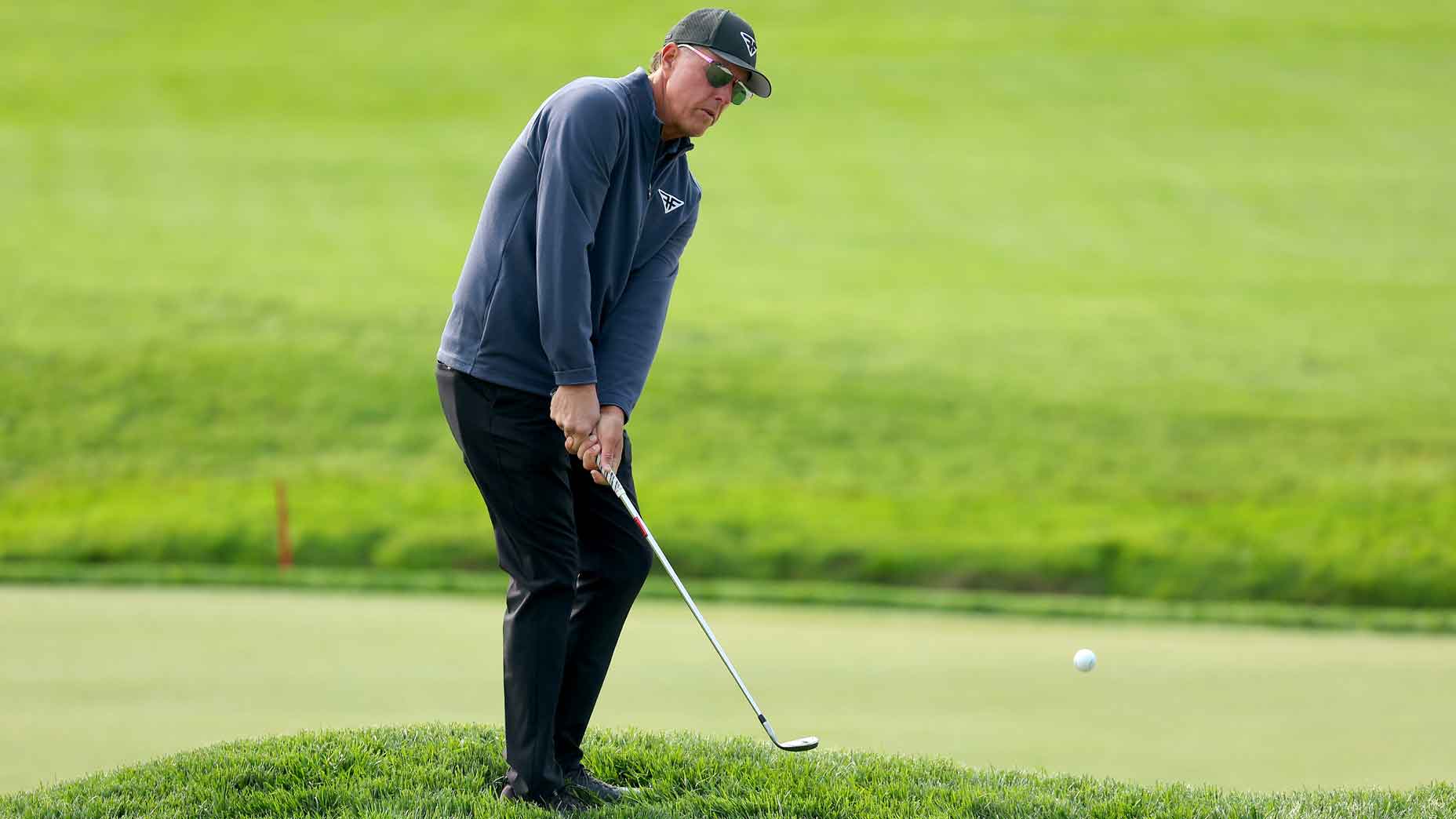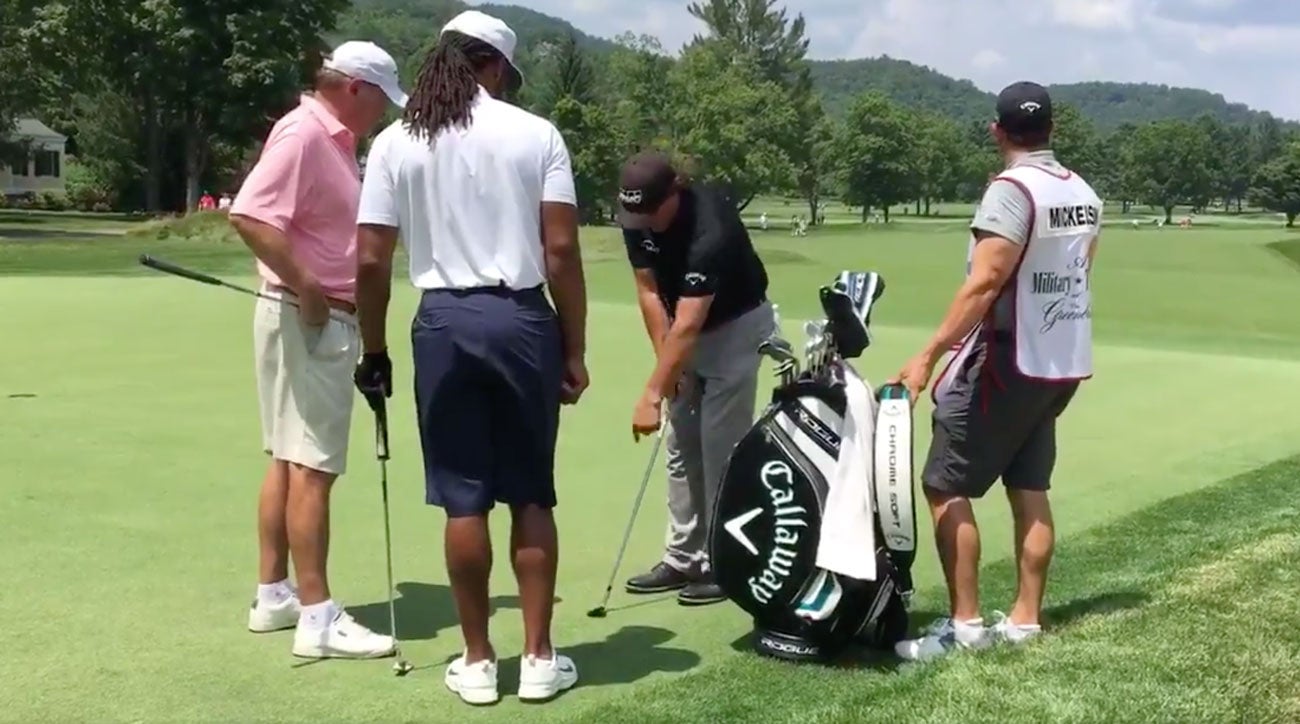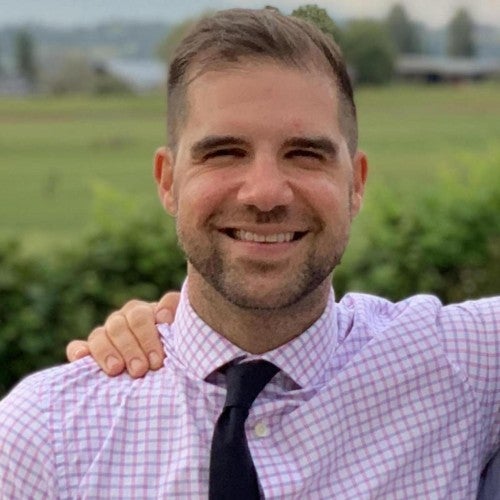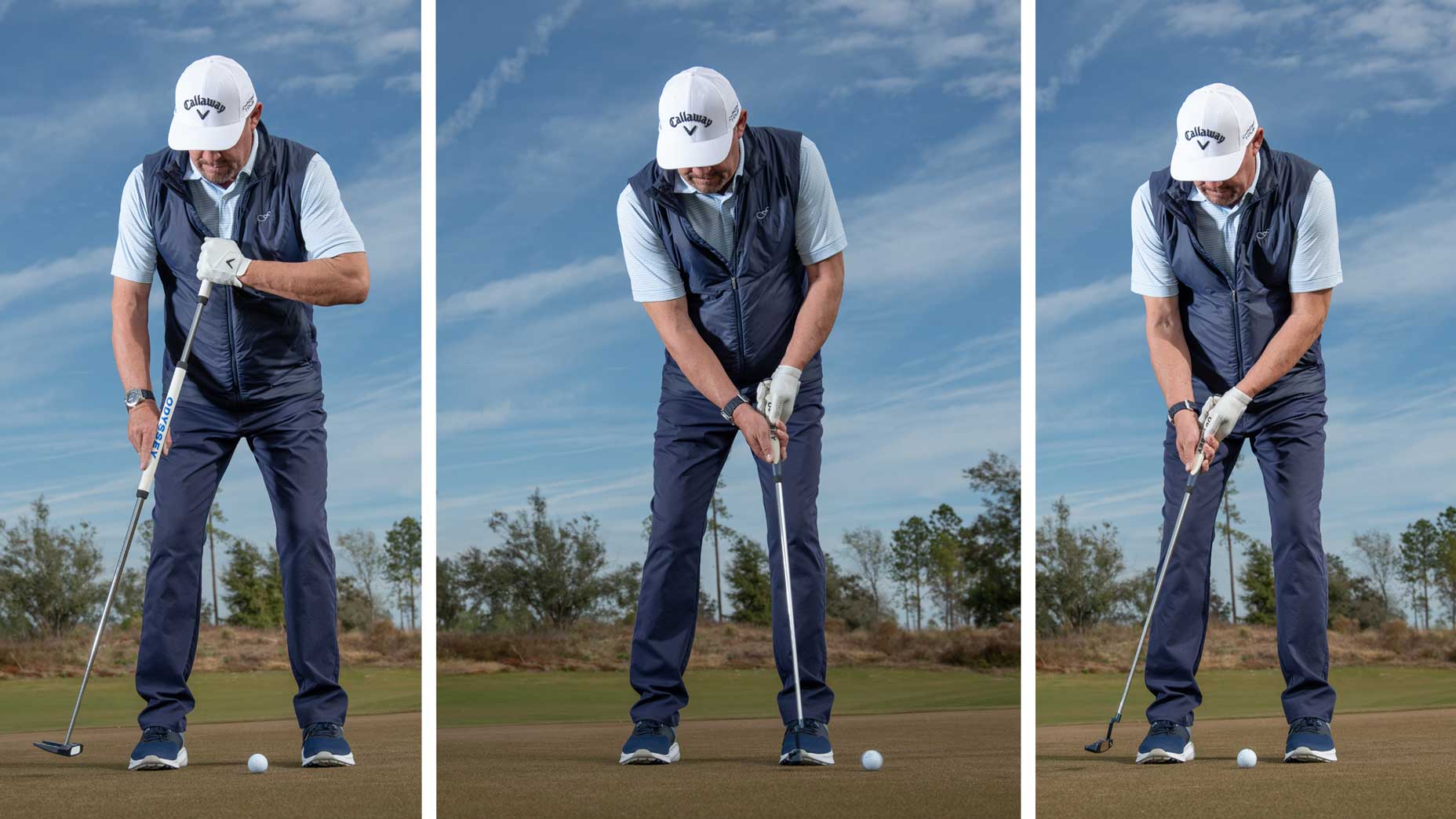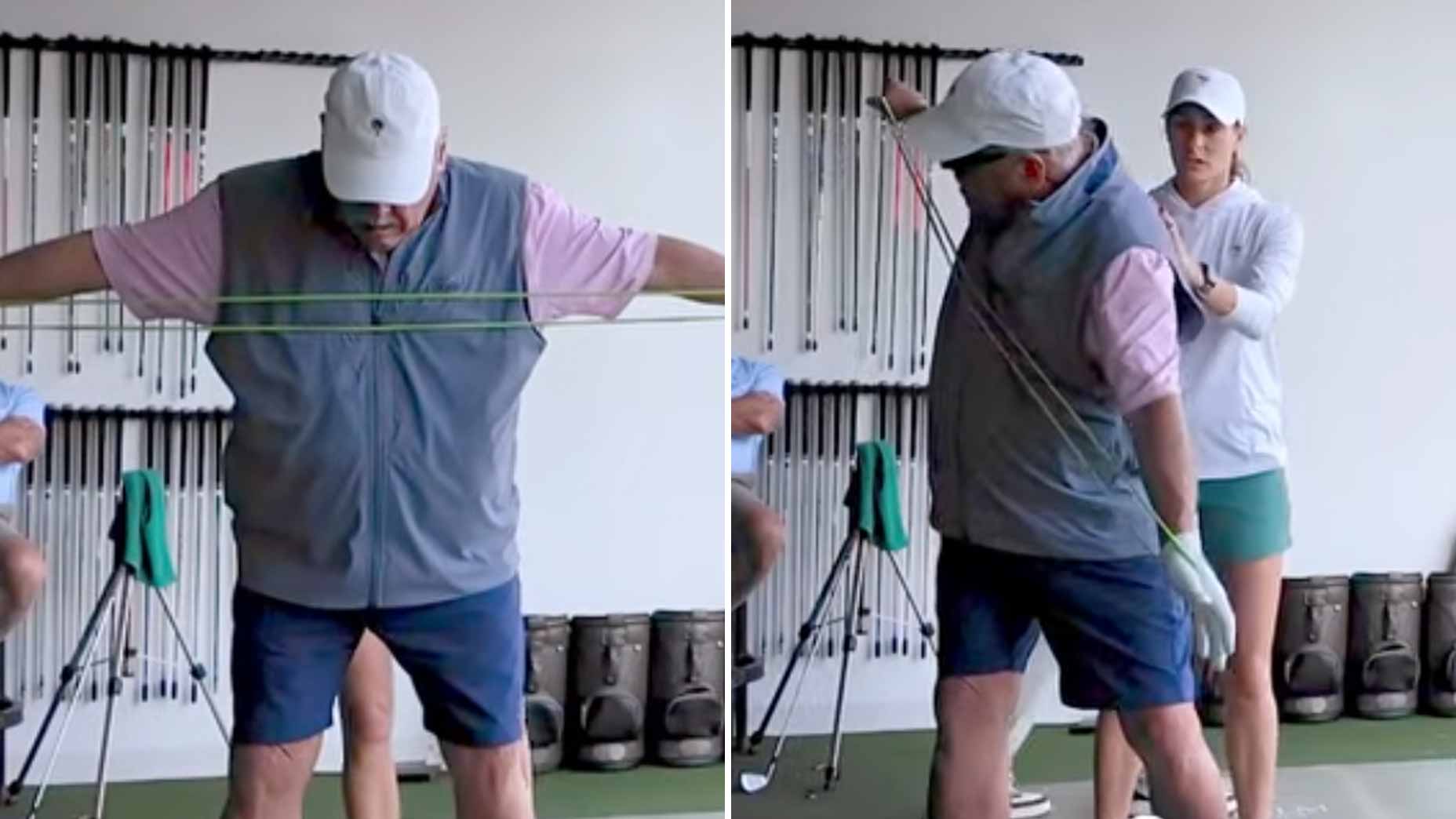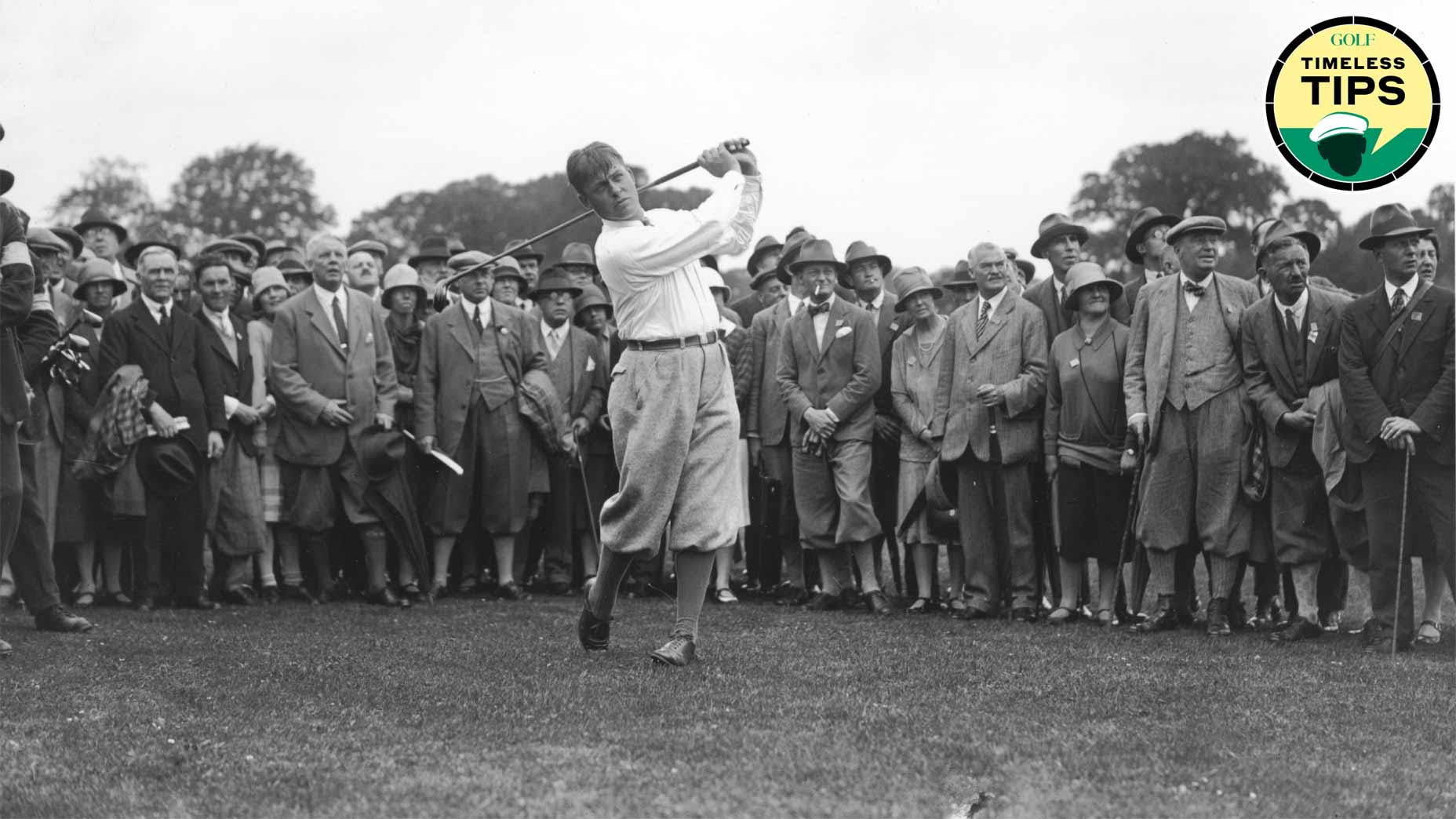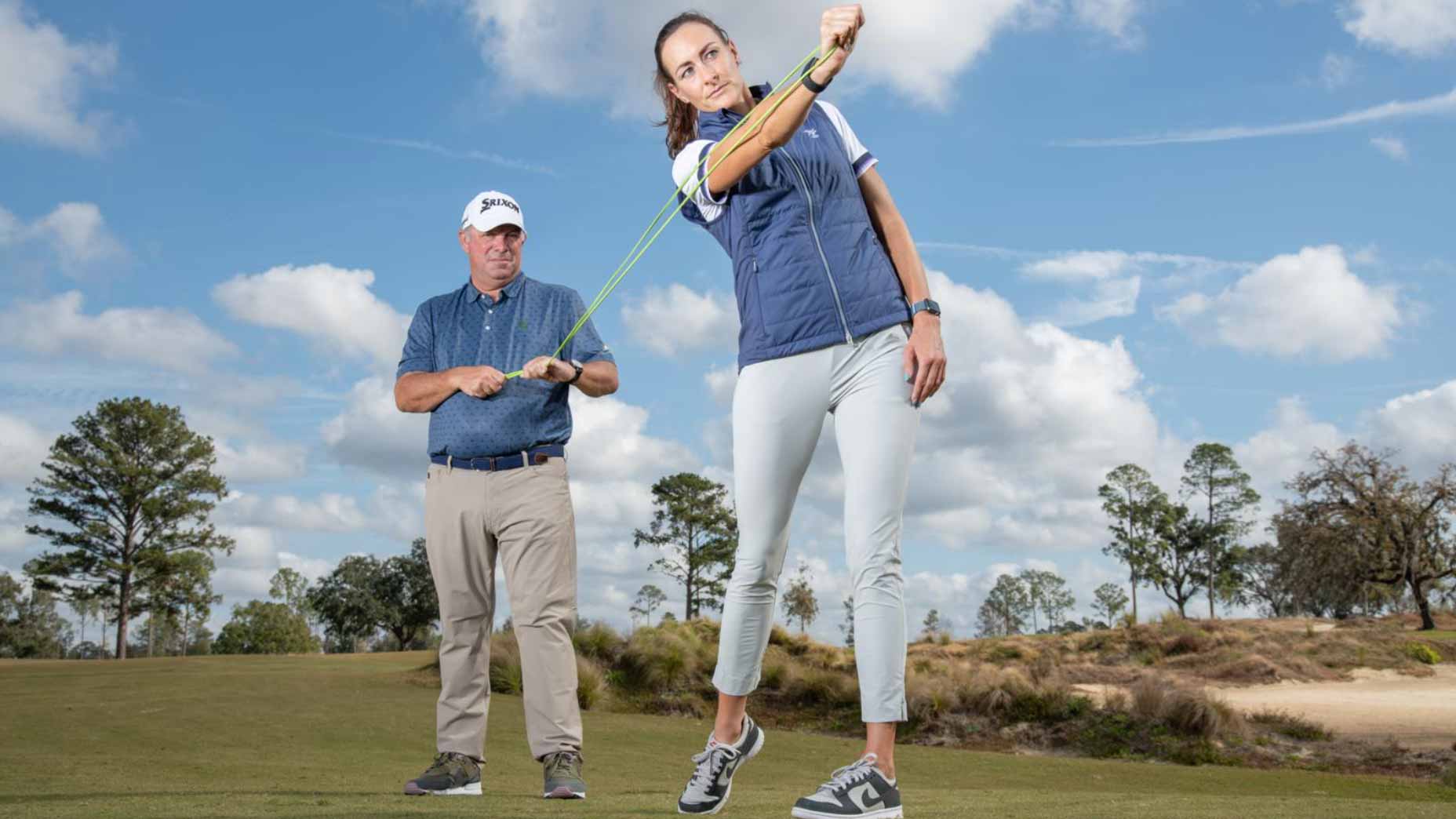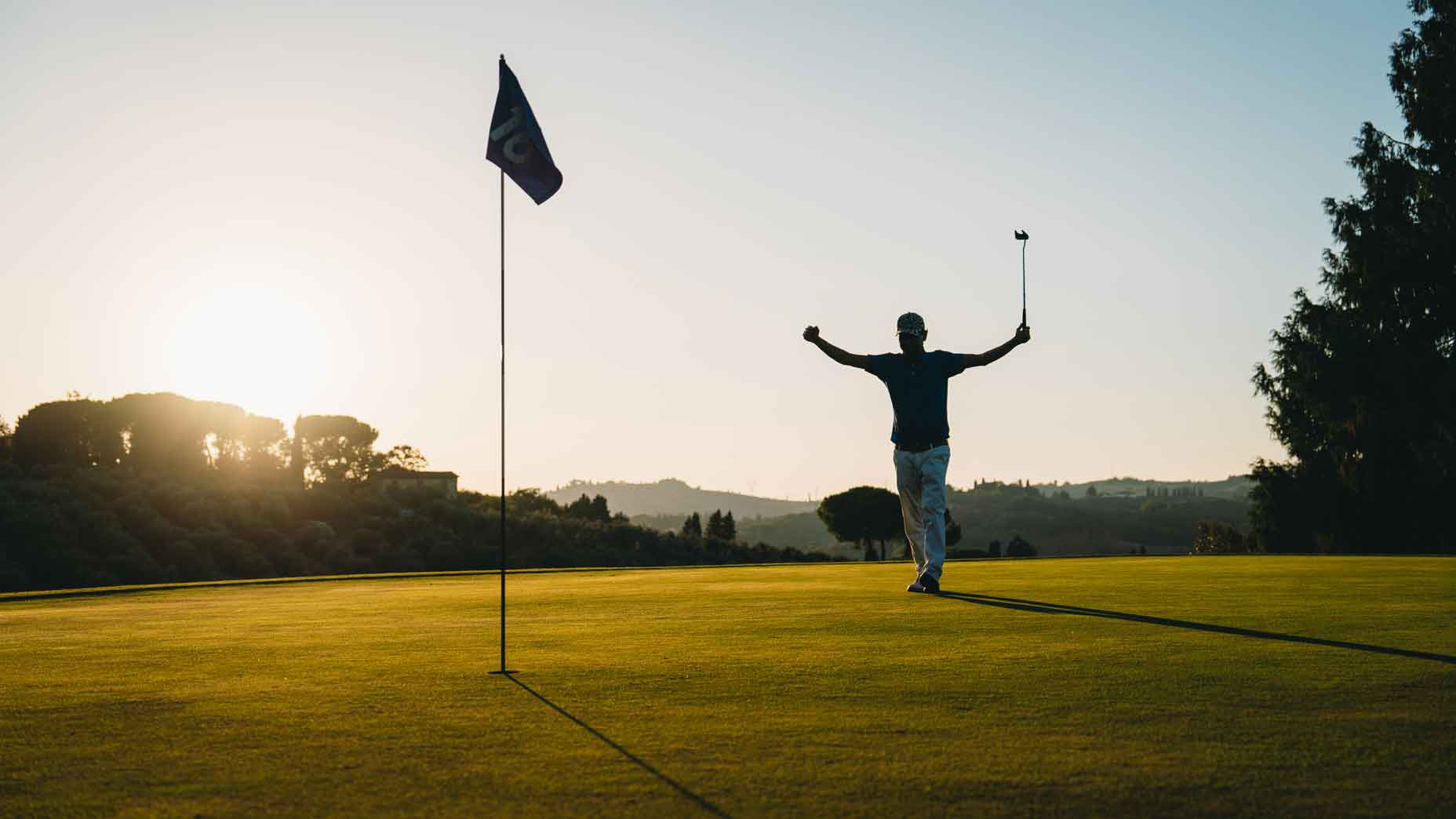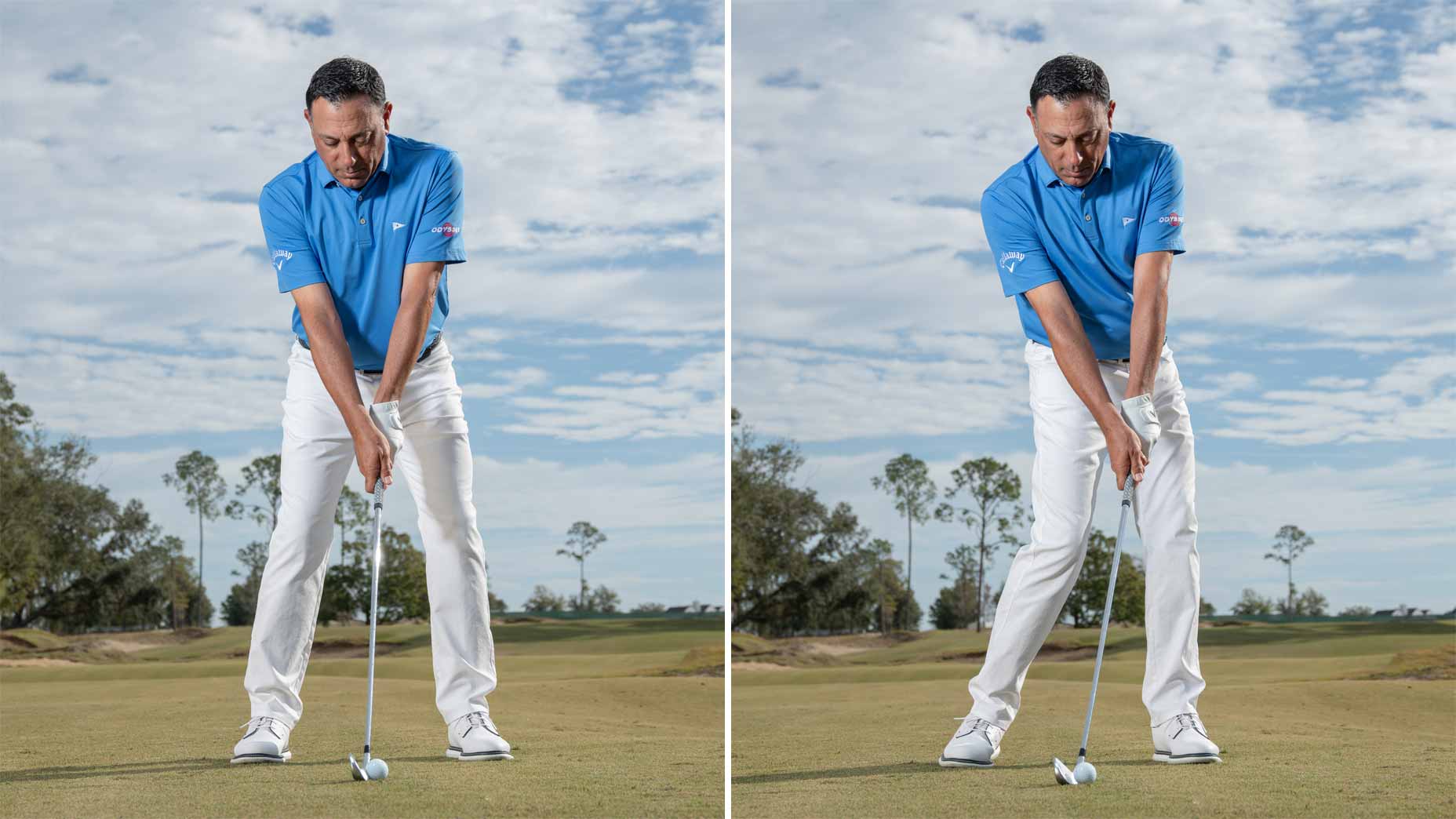With the reputation for being a short game master, Phil Mickelson knows how to hit it crispy anytime he’s around the green. With six major titles, he can back up pretty much any golf instruction that he shares, which is why players like Jon Rahm even pay close attention.
It’s one thing to be giving a fellow major champion some advice. But it’s another thing to have Mickelson provide a glimpse into his creativity around the greens to folks like you and me.
That’s what the 53-year-old did recently, though, sharing some short game advice on his Instagram account — which can be seen below.
Phil Mickelson’s chipping tips
Never one to lack confidence, Mickelson starts the video by stating the obvious, “Your short game wants some help. It needs some help.” Lucky for us, he’s got some tips to improve your chipping game.
Mickelson then dives into the three things that every player needs to have in order to chip well.
“The first is, you have to have your weight forward. That helps you keep the leading edge down,” he says. “The second is, you have to have your hands in front of the club so that there’s an inverse line. Once your hands get behind, the leading edge comes up. Then we’ve talked about how you want to have the ball position forward if we want to go high, and off our back foot if we want to go low.”
But here’s the kicker: Just doing those three things won’t always produce the positive results you’re looking for. That’s why Mickelson says it’s important to mirror your swing while chipping with what you do in your full swing.
WATCH: Phil Mickelson gives fascinating chipping lesson to Larry Fitzgerald
“In a full swing, if you don’t turn your shoulders, you’re not able to get the club in front and on a good path. Meaning, if you just kind of tilt and stop your turn, you’re fighting to get the club through,” he adds. “But if you turn your shoulders, now the club can get out in front and get right on the path. The same thing is true in chipping.”
This is what Mickelson says many amateurs are forgetting to do when chipping, and it leads to a steep angle of attack. That opens up the possibility of either chunking a shot or thinning a shot — depending on if you properly distribute your weight.
Says Mickelson, “if we just take it [the club] back and we don’t get any turn in our shoulders, the club wants to come in really steep, and it’s hard to find the bottom of the arc and make solid contact.”
By incorporating more of a shoulder movement, it allows the club to fully stay on plane — similar to a full swing — which helps engage the bounce of the club for better contact. The result should be a nice, soft finish to the shot.
“So what I like to do is really focus on getting my shoulders to start to turn. Even though I’m breaking my wrists and getting my hands ahead [of the ball], if I can just turn my shoulders as the first move, now it’s very easy to go through and into the finish,” he says. “What this does is, it decreases the hand action and increases the feel in the hands, which is what we want.”
